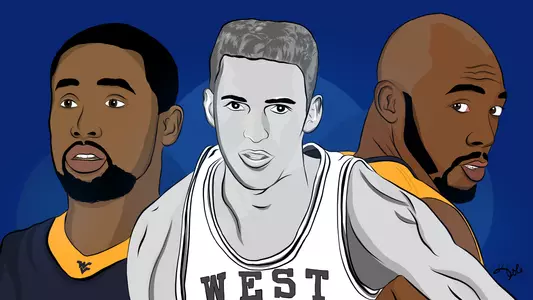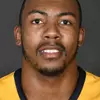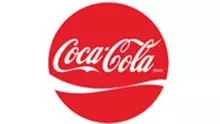
Photo by: Kaitlyn Cole
These Guys Got Next!
February 14, 2019 10:45 AM | Men's Basketball, Blog
| WVU's Fantastic 5! | ||
|---|---|---|
| Player, Ht. | PPG | RPG |
| Jerry West, G | 24.8 | 13.3 |
| Ron "Fritz" Williams, G | 20.1 | 4.5 |
| Jevon Carter, G | 12.2 | 3.7 |
| Da'Sean Butler, F | 14.3 | 5.5 |
| Rod Thorn, F | 21.8 | 11.1 |
In this particular game, you can choose any five players you wish from West Virginia University's long and storied basketball history that includes more than 1,750 wins, 29 NCAA appearances and numerous championships.
So, who are your five?
You want winners, of course. You want good teammates, for sure. You also want players willing to pass the ball and defend. And, you want guys who won't quit no matter the circumstances.
When I was growing up in the state's Northern Panhandle in the late 1970s and early 1980s, my good friend Bob Robinson (a great WVU supporter, by the way) always had the best summer league basketball teams.
Bob operated a car dealership in my hometown, and it seemed like he had the tallest collection of salesmen, servicemen and technicians anywhere. Whenever you wanted to buy a car from one of Bob's salesmen, you were usually looking up when you talked to them.
It was almost as if Bob's criteria for hiring personnel at his car dealership were the following:
Could he rebound?
Could he pass and shoot?
And, could he play basketball in the summer?
After that, Bob took care of the rest.
Those powerhouse Bob Robinson Chevrolet summer league teams were lingering in my mind when I began to consider all of the great players WVU has produced through the years, dating back to 1904.
The way Bob used to build his teams seems like a good place to start.
Can he rebound?
Can he pass and shoot?
It's also probably a good idea to seek the opinion of others, so I sent out a flurry of text messages and emails to a number of different WVU sports experts earlier this week to get their thoughts on the five Mountaineer players they'd pick to win one basketball game.
I asked our Tony Caridi and Jay Jacobs.
Tony knows the game inside-out going back to his days covering the Syracuse Orange in the early 1980s. In fact, a young Caridi once got some sage advice from Hall of Fame coach Jim Boeheim after showing up to call an Orange hoop game for the Syracuse student radio station with his hand heavily bandaged, the result of nearly slicing his finger in two while grabbing a razor out of his toiletry bag.
"Don't you know you should look in the bag before you start rummaging around in there, you dumb %$#!" Boeheim said.
Words to live by!
Of course, Jay wasn't around to hang up the peach basket for Dr. Naismith, but he's not too far off. He says he can remember watching WVU basketball games at the old Field House back when FDR was still around. No, not Franklin Delano Romanowski from "Seinfeld," the real FDR!
I also asked Greg Hunter and Kevin Kinder of the Blue and Gold News for their opinions because these guys really know their stuff.
I caught up with the knowledgeable Keenan Cummings, too, who covers the Mountaineers for Rivals.com. Keenan's mother knew what she was doing when she named her son because he certainly possesses a keen eye for talent.
Then I got in touch with Justin Jackson of the Dominion Post, as well as cagey veteran scribe Bob Hertzel, whose stellar New Jersey prep sports career in the late 1950s began behind a single-bar facemask.
These two know what they're talking about, too!
I even tracked down some of the graybeards – retired Wheeling Intelligencer sports editor Doug Huff, who was keeping score of WVU basketball games next to a transistor radio back in the mid-1950s, retired local sportswriter and author Norm Julian, who came of age during the Age of Aquarius, former Charleston Gazette sports editor Mitch Vingle and our very own Wonderful Warren Baker, whose Mountaineer career was good enough to warrant some consideration as well.
Their responses were as interesting as the five players they chose, the exception being Bake who begged off after picking only two – Jerry West and Fritz Williams.
"Oh man, too hard," Baker says. "I'd have to really think about the others."
As former Mountaineer player Jimmy Lewis once told me, "After Jerry West, the rest are a matter of personal preference."
 He's right. Any all-time team made up of West Virginia basketball players will always begin with Jerry West.
He's right. Any all-time team made up of West Virginia basketball players will always begin with Jerry West.Long before he was Mr. Clutch for the Los Angeles Lakers, West was West Virginia's Mr. Clutch. He was one of the few Mountaineer players to have a winning record against nationally ranked teams, and he was the star performer on WVU's best-ever team in 1959 that lost by one point to Cal in the national championship game.
Actually, West Virginia didn't lose the game – it just ran out of time.
The basketball was in West's hands when time expired, and you wonder what would have happened had he been a little closer to the rim like he was against the New York Knicks in the 1970 NBA finals when his miracle 60-foot shot at the buzzer sent the game into overtime.
As a sophomore in 1958, West scored 17 of West Virginia's final 23 points to overcome a 14-point second half deficit and defeat Villanova 76-75 at the Palestra in Philadelphia.
It was West's pass to center Lloyd Sharrar with two seconds left that led to the winning basket. From that moment on, he dominated games.
The late Jack Fleming once recalled that great Mountaineer victory over Villanova with glee, "You worked in the crowd at the Palestra and I had these Villanova people on my back the entire game, ON MY BACK!" Jack said.
"Well, when we came back and won the game I screamed the final score over the air. Then, when we went to commercial I turned around and said to them, 'Take that and shove it up your $#@!'"
West's teammates remembered one occasion when coach Fred Schaus had the team organized at the end of the game to draw up a winning play. West, growing impatient, finally looked at Fred and said, "Just give me the damned ball!"
For many years afterward, Schaus wisely kept giving West "the damned ball" when the two were paired together with the Lakers.
Baker's other choice, the late Ron "Fritz" Williams, was shared by six others, so he joins West on our mythical five.
 Williams was a tremendous player at WVU in the mid-1960s who many onlookers say was hamstrung by young coach Bucky Waters' structured Duke system that really didn't suit Fritz's talents.
Williams was a tremendous player at WVU in the mid-1960s who many onlookers say was hamstrung by young coach Bucky Waters' structured Duke system that really didn't suit Fritz's talents."If we turn him loose, he could be getting himself up to 40 points a game," Waters told Pittsburgh Press sportswriter Roy McHugh during Williams' sophomore season in 1966.
Waters was true to his word and never turned Fritz loose, so Williams averaged 20 and owned the school assist record for 51 years until Jevon Carter broke it last season.
Williams didn't play on great Mountaineer teams nor did he play against great competition in the old Southern Conference, which was basically a two-team league back then – Davidson and West Virginia - but he was a guy who inspired others and was just as important to his team off the floor as he was on it.
"He never had a bad day," Lewis once said of his best friend.
Fritz rarely had bad games either, the 6-3 guard failed to score double figures just four times in 84 career games at West Virginia University.
An eight-year career in the NBA followed WVU for Williams.
The NBA wasn't in Da'Sean Butler's future because of a serious knee injury he suffered in the NCAA Tournament semifinals against Duke, but after West, was there ever a more clutch Mountaineer performer than Butler?
The short answer is no.
 Seven times during his senior season in 2010 Da'Sean hit game-winning shots, and the 6-7 forward led the Mountaineers to a school-record 31 wins and a Final Four trip that season.
Seven times during his senior season in 2010 Da'Sean hit game-winning shots, and the 6-7 forward led the Mountaineers to a school-record 31 wins and a Final Four trip that season.His biggest game winner of all came in the Big East Tournament finals to defeat Georgetown 60-58 – considered one of the great victories in school history.
Butler was a career 14.3 points-per-game scorer, but he upped his average to an impressive 16.3 points in 41 career games against nationally ranked teams.
Playing on just one good foot, Butler dropped a career-high 43 points on 13th-ranked Villanova during his junior year in 2009. The other foot was so swollen after he severely sprained his ankle the day before playing the Wildcats that coach Bob Huggins didn't think there was any way he would see the floor.
Butler scored 22 fewer points in a 68-66 overtime victory over the ninth-ranked Wildcats the following season, but what he did was equally impressive.
After West Virginia got into a deep hole by scoring just 16 first half points, Butler dug them out by keying an 18-5 run to begin the second half. He scored the decisive basket with 5.8 seconds to go in overtime and finished the game with 21 points and 10 rebounds.
Caridi's Svengali, Jim Boeheim, once cast the key vote to put Butler on the U.S. Junior National Team. "There's really nothing he can't do – he handles the ball, he defends, he rebounds, he passes, he scores and he shoots it," Boeheim said. "He's just a tremendous all-around player."
Huggins assessed Butler's skills in a different manner after watching West Virginia struggle in a late November victory during Butler's senior season.
"It's getting increasingly hard for Da'Sean to bring the ball up the floor, throw it to himself, score, rebound his misses and go down the floor and guard the other team's best guy," Huggins said.
Talk about an endorsement!
Come to think of it, in today's game the perfect college basketball team would probably consist of five Da'Sean Butlers.
On this imaginary WVU squad, we'll put Da'Sean on the center.
 Guarding the other team's best ball-handler is Jevon Carter. JC ended up getting seven votes from our panel of experts, matching backcourt mate Fritz Williams.
Guarding the other team's best ball-handler is Jevon Carter. JC ended up getting seven votes from our panel of experts, matching backcourt mate Fritz Williams.Unlike Fritz, Carter played on terrific WVU teams and was a perfect match for his coach, Bob Huggins. West Virginia's record was an amazing 105-39 with three NCAA Tournament Sweet 16 appearances while JC was on the floor.
Twenty-one times Carter's Mountaineer teams beat ranked foes, twice downing college basketball's No. 1.
Not even Jerry West can lay claim to that!
Carter developed a reputation as a lock-down defender as a two-time national defensive player of the year, which occasionally overshadowed his abilities as an offensive player. After all, he did produce 25 double-digit scoring games against nationally ranked teams.
Sometimes, the full appreciation for a player comes once they are gone. Texas coach Shaka Smart paid Carter a tall compliment following the Longhorns' 22-point victory over West Virginia at the WVU Coliseum last Saturday night.
"My favorite player in the league last year was Jevon Carter," Smart said. "He was as central to their team and culture as anyone in college basketball the past couple of years. You can't just plug someone in to replace that."
If you think replacing Jevon Carter is hard, what about replacing Jerry West?
 That's what the final player on our mythical Mountaineer basketball team, Rod Thorn, was asked to do in 1961.
That's what the final player on our mythical Mountaineer basketball team, Rod Thorn, was asked to do in 1961.No player in school history had more pressure on him to perform than Thorn, once declared a natural resource by the West Virginia Legislature in order to keep him from signing with Duke out of high school.
To make matters worse, Thorn was issued the same uniform number West wore at WVU, No. 44.
"I wore 44 in high school and, for no specific reason, I liked the double number," Thorn recalled in 2010. "Over the course of my career I either wore 44 or 10, even in pro ball. When I got there nobody said I couldn't wear it so I ended up wearing it.
"Probably, if I had to do it over, I wouldn't have."
Wearing West's 44 helped make Thorn a marked man from the moment he stepped on the floor at WVU. Still, he averaged 21.8 points per game for his career and led the Mountaineers to NCAA Tournament appearances in 1962 and 1963.
But because he played the same position and bore a resemblance to West, everyone expected Rod to play like Jerry. Unfortunately for Rod, as Roy McHugh once famously wrote, "the Jerry Wests of this world don't come in pairs."
"I think the expectations for Rod there … I didn't think they were fair," West once said. "Everyone should have let Rod Thorn seek the own depth of his water, so to speak, and let him find a place for himself in terms of what he was able to accomplish as a player."
Looking back on his WVU career, Thorn did accomplish a great deal, particularly during his junior season in 1962 when he led the Mountaineers in scoring (23.7 ppg.) and rebounding (12.1 rpg.).
The next-to-last game of Thorn's college career in 1963 was his finest when he poured in a career-high 44 points in a 97-88 NCAA Tournament loss to St. Joseph's over in College Park, Maryland.
In the consolation game the next night, Thorn scored 33 against ninth-rated NYU.
"We played NYU with Happy Hairston and Barry Kramer, who was the second-leading scorer in the nation that year and ended up getting drafted in the first round, so they had a good team," Thorn recalled. "I'll never forget it; I had 33 points with 10 minutes left in the game, and we went into a stall.
"I kept thinking, 'This is a third-place game and we're going into a stall? We ended up winning and I never scored again the rest of the game," he said. "I would have had at least 44 in that game if we would have kept playing. But (coach George King) wanted to win the game."
The Mountaineers did, 83-73.
Jerry West, Ron "Fritz" Williams, Da'Sean Butler, Jevon Carter and Rod Thorn – West Virginia's Fantastic Five!
There were several others worthy of consideration such as forward Kevin Jones, who made Kinder's five.
"My top five is admittedly height challenged, but in picking a five-man squad to win one game, I want players to understand how to play who know how to meld their talents with others on the court, and who would put up blistering amounts of off-court preparation to win," Kinder explained.
Cummings also put Jones on his squad along with West, Hot Rod Hundley, Carter and Butler.
Doug Huff included Hundley and Wil Robinson in addition to West, Williams and Carter. Hot Rod was Hot Rod, which meant sometimes he might play it straight and other times he might try a shot off of the top of his head. As for Robinson, supposedly the one knock on him when he played at WVU was his inability to go to his left, but as the late Gary McPherson used to say about West Virginia's best-ever single season scorer, "He didn't have to!"
"All of them could score, plus do the other things to win such as pass, defend and rebound," Huff noted. "I'm picking a serious Hot Rod, of course. Next would probably be Rod Thorn, Da'Sean Butler, Mark Workman and Greg Jones."
Jonesy made Jackson's top five as well. Jackson also had Mark Workman on his WVU team at center. Both were tremendous players in their own right.
Jacobs listed Sharrar among his top five choices. He was the big man on the Mountaineers' 26-2 team in 1958 that finished the season ranked No. 1 in the country.
Julian went old-school with one exception, Da'Sean Butler.
 The only different player Vingle put on his team was late-1970s guard Lowes Moore, an explosive scorer who performed on some mediocre Mountaineer squads during his career.
The only different player Vingle put on his team was late-1970s guard Lowes Moore, an explosive scorer who performed on some mediocre Mountaineer squads during his career. However, Moore did have one of the great individual performances in school history when he poured in 40 points in a 103-82 loss at fifth-ranked Notre Dame in 1978. Vingle's others were West, Butler, Williams and Carter.
"These guys are the most clutch, starting with Mr. Clutch, followed by guys who would score, be disciplined and bring the victory home to Team Vingle," Mitch said.
Hertzel opted to place versatile forward Damian Owens in his top five along with West, Carter, Butler and Jones.
He picked his squad by positions, not necessarily his five best players.
"I would have loved to have seen Owens and Butler on the same team together," Hertzel said. "I put together five guys who were team players who had skills that complemented each other while possessing a strong work ethic.
"There are a lot of baseball players better than Pete Rose (OK, not a lot), but you wanted him on that team to win one game," Hertzel added. "Joe Mazzulla would do all he could to find a way to win, but he didn't have the same talents as some of the others so it's a tricky designation."
As for me, I want shooters and defenders. I want West and Carter in my backcourt, with Butler and Thorn on the wings.
My center? Yep, I want Pittsnogled!
Some get hung up with Kevin's rebounding difficulties or his lack of defensive prowess, but what they forget is his outside shooting changed the college game back in the mid-2000s when it was considered blasphemous to put a 6-11 center on the perimeter.
Keep in mind, too, that Pittsnogle's shooting was responsible for some very significant wins for the Mountaineers.
 Do you remember when he made the yinzers choke on their Primanti sandwiches up at the Pete in 2005, or the 25 he dropped on 15th-ranked Georgetown in a big West Virginia road win at the MCI Center during his senior season?
Do you remember when he made the yinzers choke on their Primanti sandwiches up at the Pete in 2005, or the 25 he dropped on 15th-ranked Georgetown in a big West Virginia road win at the MCI Center during his senior season?What about the 22 he put on Texas Tech in Bobby Knight's last hurrah in the NCAA Tournament out in Albuquerque?
What if Pittsnogle has the ball in his hands at the end of regulation against Louisville in the Elite Eight? Yes, it's most likely West Virginia and not Louisville in the Final Four that year.
How many players in WVU history can say they played in an Elite Eight and a Sweet 16 in back-to-back seasons like Pittsnogle did?
It won't take you long to count them.
Plus, I loved all of Kevin's tattoos, the mop-top haircut and the fact that his game was basically fueled on pizza and cheeseburgers. Once he made his mile-run time at the start of preseason practice, Pittsnogle stayed fit the same way John Winger once did in "Stripes" – by pacing himself!
And, of course, he satisfied a key criterion set forth by a wise, old Ohio Valley car dealer I know – he could shoot!
Tweet me your WVU top five @JohnAntonik or use the hashtag #wvutop5.
Players Mentioned
TV Highlights: WVU 80, Wheeling 54
Monday, October 27
Ross Hodge | Wheeling Postgame
Sunday, October 26
Harlan Obioha & Brenen Lorient | Wheeling Postgame
Sunday, October 26
Honor Huff Scores Three Against Wheeling
Sunday, October 26












